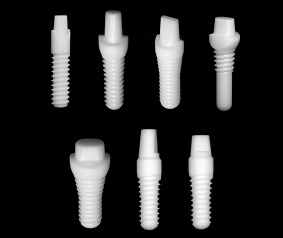Does Osteoporosis Increase Implant Failure in Patients?
 AD Ratings - Dental Implants
AD Ratings - Dental Implants
 Aug 25, 2025
Aug 25, 2025
Is There a Link Between Osteoporosis and Dental Implant Failure?
Concerns about whether osteoporosis increases the risk of dental implant failure have long been debated among patients and clinicians alike. Fortunately, recent high-quality research reveals that osteoporosis does not significantly increase the chances of dental implant failure when compared to individuals without the condition.
A comprehensive meta-analysis drawing data from respected medical databases like PubMed, Cochrane Library, Web of Science, and SciELO—updated through September 2016—has shed new light on the relationship between bone density and implant success rates.
Study Selection Criteria
To ensure accuracy and relevance, researchers included only studies that met the following criteria:
-
At least five patients per study
-
Minimum 6-month follow-up period
-
Randomized controlled trials, retrospective, and prospective observational studies
-
Studies published in English
-
Excluded: animal studies, in-vitro research, and case reports lacking statistical robustness
Overview of the Findings
The meta-analysis reviewed data from 15 observational studies, encompassing a total of 8,859 patients and 29,798 dental implants. The average patient age was approximately 63 years, and follow-up durations ranged from 9 months to 22 years, with a mean follow-up of 5.85 years.
Key implant parameters included:
-
Minimum implant diameter: 3.3 mm
-
Minimum implant length: 7 mm
Survival Rate Analysis
The implant survival rate was comparable between patients with and without osteoporosis:
-
Patient-level relative risk (RR): 0.98, 95% Confidence Interval (CI): 0.50–1.89; P = 0.94
-
Implant-level relative risk (RR): 1.39, 95% CI: 0.93–2.08; P = 0.11
These findings strongly indicate no statistically significant difference in implant survival related to osteoporosis.
Secondary Outcome: Bone Loss
While survival rates remained consistent, the peri-implant bone loss was slightly more pronounced in patients with osteoporosis:
-
Marginal bone loss difference: 0.18 mm (95% CI: 0.05–0.30; P = 0.005)
Though the bone loss increase was minimal, it suggests that osteoporotic patients may experience more peripheral bone changes over time—warranting closer long-term monitoring.
Methodology and Data Review
The quality and potential bias of included studies were evaluated using the Australian NHMRC guidelines. A panel of four independent reviewers conducted the research screening, with any disagreements settled through discussion.
Data Points Considered:
-
Author and year of publication
-
Study location and sample size
-
Number and types of implants used
-
Implant specifications (length, diameter)
-
Type of oral prosthetic used
-
Follow-up duration
-
Bone loss and implant failure rates
-
Osteoporosis treatment regimens (e.g., bisphosphonates)
-
Risk assessment:
-
Relative Risk (RR) for implant failure
-
Standardized Mean Difference (SMD) for bone loss
-
Statistical heterogeneity and publication bias were analyzed
-
Final Verdict: Can People With Osteoporosis Get Dental Implants?
Yes. According to current scientific evidence, having osteoporosis does not make you more likely to experience dental implant failure. However, patients may show slightly increased marginal bone loss, and regular monitoring is advised.
Clinical Recommendations:
-
Implant procedures can be safely performed in osteoporotic patients
-
Long-term success is achievable with good oral hygiene and consistent follow-ups
-
Dentists should evaluate bone density and adjust implant strategies accordingly
-
Patients on medications like bisphosphonates should inform their oral surgeon prior to treatment
Bottom Line
The myth that osteoporosis automatically compromises the success of dental implants has been debunked. With proper planning, skilled dental care, and ongoing maintenance, patients with low bone density can enjoy successful implant outcomes that are on par with healthy individuals.
Trending News
-

The New Face of Plastic Surgery: How Ozempic, Hormones, and Social Media Are Reshaping Aesthetics in 2025 Dave.C
-

Are Your Implants Covered? Understanding Plastic Surgery Complication Insurance David.C
-

How to Treat Pigmentation Changes on Melanin-Rich Skin Post-Eczema David.C
-

10 Reasons Why Metal-Free CeraRoot Zirconia Dental Implants Are Superior Dr. Azadeh Khajavi - Excellence Dental
-

9 Recovery Tips From a Plastic Surgeon (and Patient) to Make Healing Easier Dave.M
